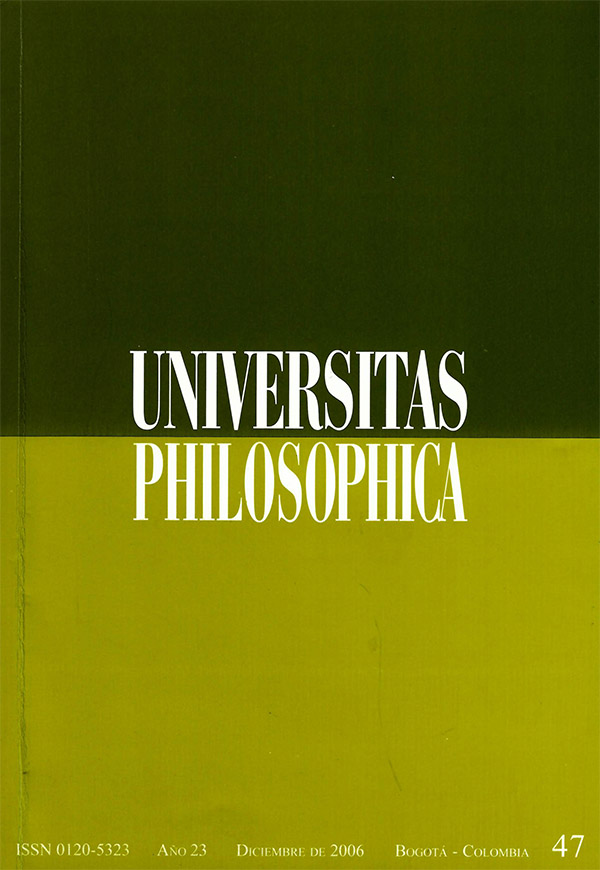Abstract
This essay, within the context of Oneself as Another, develops four main ideas: First, when Ricœur talks about his “little ethics”, he supposes a phenomenology of the self displayed as a hermeneutic subjectivity. Second, this subjectivity is only possible through a linguistic mediation which keeps in mind the reflexive philosophy inspired on J. Nabert. Third, based on the concept of narrative identity the cogito integrale is built, and this responsible subject, engages in dialogue with some of the main principles of the ethics of communicative reason.This journal is registered under a Creative Commons Attribution 4.0 International Public License. Thus, this work may be reproduced, distributed, and publicly shared in digital format, as long as the names of the authors and Pontificia Universidad Javeriana are acknowledged. Others are allowed to quote, adapt, transform, auto-archive, republish, and create based on this material, for any purpose (even commercial ones), provided the authorship is duly acknowledged, a link to the original work is provided, and it is specified if changes have been made. Pontificia Universidad Javeriana does not hold the rights of published works and the authors are solely responsible for the contents of their works; they keep the moral, intellectual, privacy, and publicity rights.
Approving the intervention of the work (review, copy-editing, translation, layout) and the following outreach, are granted through an use license and not through an assignment of rights. This means the journal and Pontificia Universidad Javeriana cannot be held responsible for any ethical malpractice by the authors. As a consequence of the protection granted by the use license, the journal is not required to publish recantations or modify information already published, unless the errata stems from the editorial management process. Publishing contents in this journal does not generate royalties for contributors.


